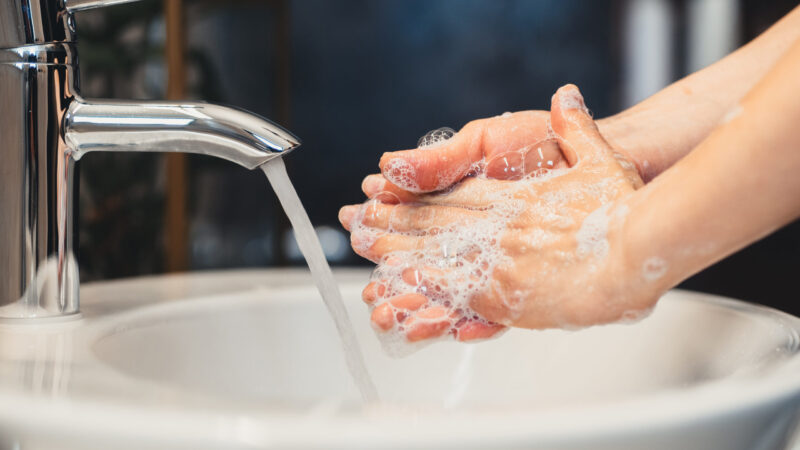
By John Swanson, Lead Nurse for Infection Prevention and Control
You may have seen in the news about norovirus being especially prevalent this winter. While it’s not a new strain, this particular type of norovirus is more widespread than it has been in recent years, and it’s the most common strain we’ve seen since 2012. Here’s what you need to know to protect yourself and others.
Norovirus, often called the “winter vomiting bug,” is highly contagious and spreads quickly, particularly in schools, workplaces, and care homes. With the holiday season approaching, it’s worth remembering that it can also spread in busy places like restaurants, cruise ships, and holiday resorts, making prevention even more important.
Here’s what you need to know about the symptoms, recovery, prevention, and when to seek help.
Symptoms of norovirus
If you have norovirus, you may experience:
- Vomiting and diarrhoea
- A slight fever
- Headaches
- Stomach cramps
- Aching limbs
Symptoms usually appear quickly and, although unpleasant, most people recover within a few days.
How to feel better
If you suspect you have norovirus, follow these steps to recover:
- Stay at home and rest. Avoid contact with others, as norovirus spreads very easily.
- Stay hydrated. Drink plenty of fluids to replace the fluids lost through vomiting and diarrhoea. You can also take rehydration sachets such as Dioralyte. Supermarket own brands work just as well and are often cheaper.
- Ease aches and pains. Paracetamol can help relieve headaches, fever, and muscle aches.
- Contact a pharmacist for advice. Phone your local pharmacy or call NHS 111 for guidance on managing symptoms.
Important
Avoid visiting a pharmacy, GP surgery, or A&E in person, unless specifically advised, as this could spread the virus.
Preventing the spread of norovirus
Good hygiene is essential to stop the spread of norovirus. You should:
- Wash your hands thoroughly with soap and warm water after using the toilet, handling contaminated items, or being in contact with someone ill.
- Wash hands before preparing or eating food – do not rely on alcohol gels, as they don’t kill the virus.
- Wash contaminated clothing or bedding with detergent at 60°C, using disposable gloves to handle them.
- Use bleach-based cleaners to disinfect surfaces that may be contaminated.
- Stay off school or work until you have been free of symptoms (vomiting or diarrhoea) for at least 48 hours.
- Avoid visiting hospitals, care homes, or other communal settings during this time.
Recovery from norovirus
Most people make a full recovery in 2 to 3 days without needing medicine. However, it is vital to:
- Stay hydrated, particularly for vulnerable groups such as children and the elderly.
- Avoid public places, GP surgeries, or A&E unless advised by a healthcare professional.
If you need advice about your symptoms, contact NHS 111 or visit NHS.uk for further information.
When to contact a healthcare professional
Call your GP if:
- There is blood in your diarrhoea.
- Symptoms persist for several days.
- You have a serious underlying health condition.
Contact NHS 111 if:
- A baby under 12 months shows signs of dehydration or stops feeding.
- A child under 5 has fewer wet nappies or other signs of dehydration.
- You or your child (over 5) cannot keep fluids down or still show signs of dehydration despite oral rehydration sachets.
- Symptoms include diarrhoea lasting more than 7 days or vomiting lasting more than 2 days.
Call 999 or go to A&E if:
- Vomit contains blood or looks like ground coffee.
- Vomit is green (adults) or yellow green (children).
- You suspect poisoning.
- You experience a stiff neck and sensitivity to bright light.
- You have a sudden, severe headache or stomach ache.
By following these steps and practising good hygiene, you can manage norovirus effectively and protect others from infection. For more advice, visit NHS.uk or contact NHS 111.